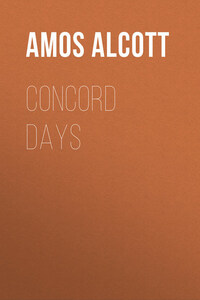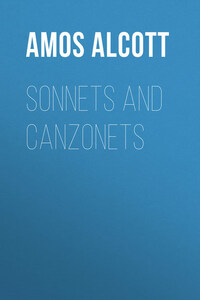1869
"Now fades the last long streak of snow."
– Tennyson.
DIARIES
Come again into my study, having sat some time for greater comfort in the sunnier east room by an open fire, as needful in our climate, almost, as in that of changeable England. Busy days these last, with a little something to show for them. After all, I am here most at home, and myself surrounded by friendly pictures and books, free to follow the mood of the moment, – read, write, recreate. I wish more came of it all. Here are these voluminous diaries, showy seen from without, with far too little of life transcribed within. Was it the accident of being shown, when a boy, in the old oaken cabinet, my mother's little journal, that set me out in this chase of myself, continued almost uninterruptedly, and now fixed by habit as a part of the day, like the rising and setting of the sun? Yet it has educated me into whatever skill I possess with the pen, I know not to how much besides; has made me emulous of attaining the art of portraying my thoughts, occupations, surroundings, friendships; and could I succeed in sketching to the life a single day's doings, should esteem myself as having accomplished the chiefest feat in literature. Yet the nobler the life and the busier, the less, perhaps, gets written, and that which is, the less rewards perusal.
"Life's the true poem could it be writ,
Yet who can live at once and utter it."
All is in the flowing moments. But who shall arrest these and fix the features of the passing person behind the pageantry, and write the diary of one's existence?
MY HOUSE
My neighbors flatter me in telling me that I have one of the best placed and most picturesque houses in our town. I know very well the secret of what they praise. 'Tis simply adapting the color and repairs to the architecture, and holding these in keeping with the spot.
A house, like a person, invites by amiable reserves, as if it loved to be introduced in perspective and reached by courteous approaches. Let it show bashfully behind shrubberies, screen its proportions decorously in plain tints, not thrust itself rudely, like an inn, upon the street at cross-roads. A wide lawn in front, sloping to the road gracefully, gives it the stately air and courtly approach. I like the ancient mansions for this reason; these old Puritan residences for their unpretending air, their sober tints, in strict keeping with Wordsworth's rule of coloring, viz. that of the sod about the grounds. A slight exaltation of this defines best the architecture by distinguishing it from surrounding objects in the landscape. Modest tints are always becoming. White and red intolerable. And for some variety in dressing, the neighboring barks of shrubbery suggest and best characterize the coloring.
As for fences and gates, I was told that mine were unlike any other in the world, yet as good as anybody's, hereby meaning to praise them, I infer. If less durable than others, the cost is inconsiderable, and has the associated pleasure, besides, of having come out of such ideal capital as I had invested in my own head and hands. A common carpenter would have spent more time in planing and fixing his pickets and set something in straight lines with angular corners to deform the landscape; then the painter must have followed with some tint mixed neither by nature nor art. Now my work delights my eyes whenever I step out-of-doors, adding its ornament to the spot. Grotesque it may be with its knotted ornaments, Druid supports, yet in keeping with the woods behind it. Besides, what pleasure the construction has given! Form, color, ornamentation alike concern builder and occupant, as they were blossoms of his taste and of the landscape. A good architect is both builder and colorist, and should be a good man besides, according to the ancient authorities. Roman Vitruvius claims as much, if not more, of him: —
"It is necessary," he says, "that an architect should be instructed in the precepts of moral philosophy; for he ought to have a great soul, and be bold without arrogance, just, faithful, and totally exempt from avarice. He should have a great docility, which may hinder him from neglecting the advice that is given him, not only of the meanest artist, but also of those that understand nothing of architecture; for not only architects but all the world must judge his works."
Houses have their history, are venerable on account of their age and origin. Even our newly-settled country of but a century or two has already crowned homesteads still standing with royal honors. Mine, I conjecture, is not far from one hundred and fifty years' standing. It was a first-class country house in its day, with its window-seats in parlor and chambers, ornamental summers and casements, its ample fireplaces, and lean-to on the northern side. Like most of its period it was open to the road with overshadowing elms still embowering the mansion; had a lion-headed door-knocker, and huge chimney-tops surmounting the gables. Of learned ancestry, moreover; having been the homestead of a brother of President Hoar, of Harvard College, and remained in possession of members of that venerable family down to near the beginning of the present century. The site is hardly surpassed by any on the old Boston road; the woods behind crowning the range of hills running north almost to the village, and bordering east on Wayside, Hawthorne's last residence. It must have been chosen by an original settler, probably coming with the Rev. Peter Bulkeley from England, in 1635.









